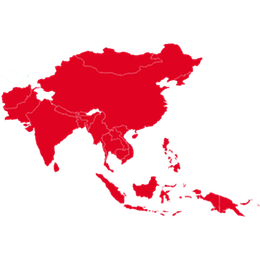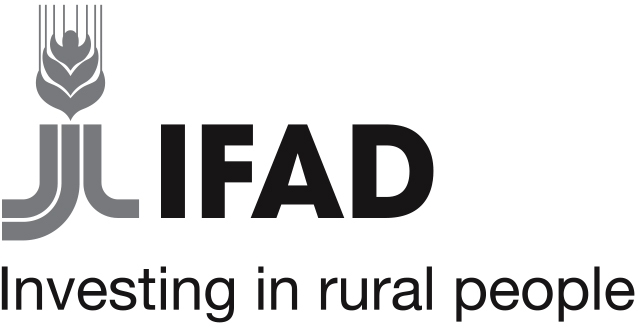Linking farmers and fair trade through cellphones
BACKGROUND
Isolation and a lack of technological connection had left many Certified Fairtrade farmers out of the loop, negatively impacting business knowledge and success. This project helped close the gap by expanding cellphone coverage and availability to all Fairtrade Certified farmers and their families.
WHAT’S INVOLVED
Knowledge sharing and knowledge management
The project was driven by the idea that better information flow means better outcomes. As well as sharing knowledge with the beneficiaries through workshops, business skill development and ongoing support, the project helped them to connect with the wider Fairtrade network and one another – cell phones increased social interaction and access to online services.
Building partnerships
The project team liaised with a wide range of external stakeholders, from producer organizations and local authorities to trade bodies in order to help establish the market and negotiate a strong position for Papua New Guinea’s Fairtrade produce.
EXPLORE THIS SOLUTION
The Fairtrade cellphones project can offer
- lessons on effective knowledge sharing and knowledge management
- experience working with the Fairtrade community and market chains

Countries involved
Papua New Guinea
Project partners
Fairtade ANZ, IFAD
Project dates
November 2013 – December 2015
Share this solution
Bookmark this solution
BookmarkShow Full Solution
Summary
This project builds on existing supply chains developed in Papua New Guinea, providing an opportunity to leverage the power of cell phones in commercializing smallholder agriculture and improving supply chain efficiency.
When market linkages are strengthened by access to market information, everyone along the supply chain benefits. The project, led by Fairtrade Australia New Zealand (ANZ) and supported by IFAD, had an explicit objective of alleviating poverty in rural areas through building agricultural business capacity.
Access to markets such as Fairtrade provides an opportunity for farmers with such small scale volumes and distance from markets to become empowered in their own organizations, negotiate fair terms of trade and fair prices for their produce, and develop long term partnerships with importers in premium markets.
Challenge
In Papua New Guinea, 40 per cent of the population lives in poverty, resulting in a low life expectancy and high infant and maternal mortality. As much as 85 per cent of the population depends on the agricultural sector for subsistence, gainful employment, and income.
Smallholder farmers in Papua New Guinea faced great obstacles that prevented them from increasing their incomes and strengthening food security, including limited access to new technologies, local markets and the latest agricultural information.
Disconnected from consumers and policy-makers, farmers usually have no control over transportation, storage and processing as their produce moves along the supply chain. Because of difficult terrain, service delivery is expensive and logistically challenging.
Poor buyer-seller relationships are compounded by the lack of postharvest handling systems, limited postharvest infrastructure, lack of cool chain management, lack of specialised transport equipment, and frequent delays in transportation to market, due to damaged roads and changing shipping and airfreight schedules. The lack of access to financial services eventually affects farmers’ incentive to sell, as buyers are unable to pay them on delivery.
Solution
By expanding the access to mobile telephone services to all Fairtrade Certified communities in Papua New Guinea, the project was able to connect farmers and their families to local and international agri-businesses, and even consumers.
Work done during the project included:
-
An organizing workshop to train cooperative managers and ‘network leaders’ in developing and maintaining supply chains through telephone communication. The workshop also brought together farmers, processors and traders to explore challenges and opportunities, and to identify networking groups to pilot the use of ICT’s.
-
Liaison and work to develop partnerships with the National ITC Authority of Papua New Guinea, Telikom Papua New Guinea Ltd, Bemobile and Digicel.
-
Work with Papua New Guinea Department of Agriculture and Livestock, Cocoa Board, Coffee Industry Corporation and local exporters, as well as local NGOs and other support agencies to strengthen dialogue and help relevant information flow through the community networks.
-
Liaison with Fairtrade ANZ Business Development team, Fairtrade International (Global Product Management Team) and other Fairtrade initiatives to identify market opportunities for target producer groups.
-
Development of and advice on models for structures and business and development plans that suit the local context and meet Fairtrade standards requirements, as well as buyers’ expectations.
-
Purchase and distribution of cellphones.
-
Regular communication and negotiation with traders in Australia, NZ and internationally to help secure a strong demand for Fairtrade Certified products from Papua New Guinea.
-
Generally support producers with their Fairtrade efforts through desk support.
Results
The project has immensely helped in scaling up Fairtrade opportunities for disadvantaged coffee and cocoa producers. It has reached more than 5,000 farmers and their families. Some results include:
-
Farmers able to build better information about markets and collaborate with others in the supply chain. The cell phones also increased social interaction as well as being helpful in medical emergencies and for mobile banking.
-
Increased entrepreneurial and organizational capacity among farmers, including the ability to identify market opportunities and to negotiate prices.
-
Increased economic activity for poor smallholder coffee and cocoa producers in Papua New Guinea, including capitalizing on opportunities to increase sales of Fairtrade coffee and cocoa exports.
Lessons learned and potential for replication
Fairtrade ANZ considers knowledge management to be the key to tackling the "know-do gap" while addressing the dual challenges of managing information and processes and managing people and their environment.
Knowledge can be created, shared and applied more systematically and effectively, bridging the "know-do gap," through:
-
Knowledge mapping to understand available assets, flows and gaps
-
Standardizing and simplifying documents and processes
-
Developing demand-driven, targeted information in priority languages
-
Facilitating access to experiential knowledge among targeted producers
-
Promoting guidance and support to leverage ICT
-
Involving partners beyond the project team
-
Promoting joint approaches at local and regional levels
-
Optimizing cellular coverage in areas where poorest households live
Solution Document Downloads
Last update: 09/08/2018


